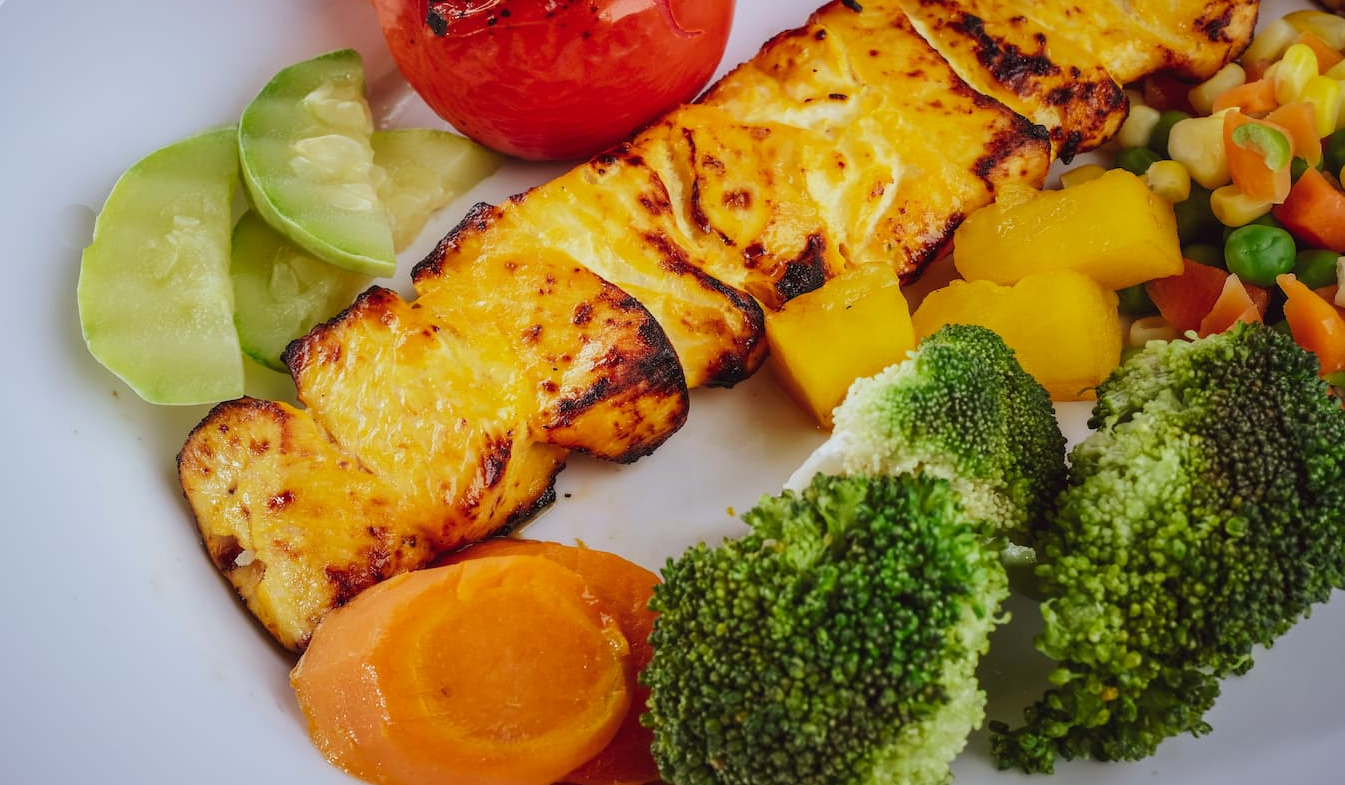In today’s ever-evolving landscape of nutrition and dieting, the concept of calories has long been at the forefront of discussions about weight management. But what if the traditional practice of calorie counting is missing the mark? Enter Why Calories Don’t Count by Giles Yeo, a seasoned geneticist whose work revolves around unravelling the mysteries of obesity.
In this book, Yeo embarks on a scientific journey to challenge our understanding of calories, delving deep into the intricacies of calorie measurement, food digestion, and the impact of genetics on our relationship with food. As we navigate the complex world of calories and their role in our diets, join us in exploring the strengths and weaknesses of this compelling exploration of the calorie equation.
Author’s background

Giles Yeo is a highly experienced geneticist with a strong focus on researching obesity and the brain’s role in controlling food intake. He holds a PhD from the University of Cambridge and has contributed to groundbreaking research on the brain’s control of food consumption. Currently, his work is centred on unravelling the variations in these control pathways among individuals and exploring the genetic factors influencing our relationship with food and eating habits. Giles serves as a principal research associate at the MRC Metabolic Diseases Unit and holds a fellowship at Wolfson College.
What is the book about?

Why Calories Don’t Count by Giles Yeo unravels the complexities surrounding calories, dieting, and nutrition. In the initial four chapters, the author delves into the concept of the calorie itself, its historical context, methods of measurement, and its prevalence in food labelling. Yeo proceeds to explore the intricate process of food digestion, the breakdown of nutrients like protein, fat, and carbohydrates, and how these components are metabolised to produce energy.
The subsequent two chapters reveal how the fundamental principle of caloric availability serves as the foundation for numerous successful weight-loss diets, shedding light on why and how these diets are effective. This principle brings various diet plans under a unified framework, offering readers a comprehensive understanding of their mechanisms.
The book’s final three chapters shift focus towards the modern issue of ‘ultra-processed’ foods and their impact on society. Yeo examines the societal implications of such foods and provides guidance on how readers can utilise the concept of caloric availability in their daily lives to make more informed food choices.
Through this exploration of the calorie equation, Giles Yeo aims to empower readers to navigate supermarkets and menus with greater confidence, fostering a changed perspective on food. The book emphasises the importance of understanding the scientific aspects of weight loss to enable individuals to make healthier dietary choices.
Table of contents

- Introduction
- Chapter 1: Calories, calories everywhere
- Chapter 2: The Atwater factor
- Chapter 3: How do we turn food into energy?
- Chapter 4: What do we use energy for?
- Chapter 5: The power of protein
- Chapter 6: The wonder of fibre
- Chapter 7: The ‘ultra’ in processed
- Chapter 8: Privilege and calories
- Chapter 9: We don’t eat calories, we eat food
- Epilogue
- Appendix 1: Selected Atwater Specific Factors
- Appendix 2: My calorie correction based on ‘Net Metabolisable Energy’
- Appendix 3: Recipes for some of my favourite ‘no-rush’ weekend dishes!
- Acknowledgement
- About the Author
- References
- Index
Three key takeaways from Why Calories Don’t Count

1The truth about calories and weight loss
In Why Calories Don’t Count by Giles Yeo, the author challenges the traditional practice of calorie counting as an effective diet plan. He explains that calorie counting without considering the source and caloric availability of foods lacks practicality.
Yeo proposes a ‘net metabolisable energy’ concept that accurately reflects the usable calories in different foods, accounting for diet-induced thermogenesis (DIT) or the energy required for food metabolism. His proposed corrections to calorie calculations include 9 calories per gram of fat, 3.8 calories per gram of sugar, 3.6 calories per gram of complex carbs, and 3.2 calories per gram of protein.
By applying these corrections, he illustrates how the calorie content of a typical restaurant meal can vary significantly from standard calculations, highlighting the importance of understanding the actual usable calories in food. This concept allows individuals to better gauge their dietary choices and work toward achieving a calorie deficit for effective weight management.
2Alarming link between food insecurity and health disparities
In Why Calories Don’t Count, Giles Yeo sheds light on the alarming issue of food insecurity, a problem that exists even in some of the world’s wealthiest countries. He distinguishes food insecurity from starvation, explaining that it arises from limited access to food due to financial constraints. Yeo cites data from the Food and Agriculture Organisation (FAO) of the United Nations, which classifies food insecurity on a scale ranging from mild worries about obtaining food to severe, consistent hunger.
Despite being affluent nations, the UK and the US have significant levels of food insecurity, particularly among socioeconomically disadvantaged populations. For example, in the UK, 1 in 5 children lived with a moderately or severely food-insecure adult. The author highlights the stark contrast between food insecurity and the growing global issue of obesity and diet-related diseases, both rooted in an unequal food system.
Yeo points out that many children rely on school meals, and the phenomenon of “holiday hunger” exposes the challenges faced by underprivileged families. The COVID-19 pandemic exacerbated these inequalities, emphasising the urgent need to address food insecurity, as it is intricately linked to health outcomes.
3Genetics influence body weight significantly
The debate about the role of genetics in obesity often stirs scepticism, but the evidence is compelling. While it is true that the fundamental principle of weight gain is consuming more calories than burned, genetics significantly affect how we make food decisions over time.
Research, including twin studies, has demonstrated the substantial role of genetics in body weight. Identical twins, who share 100% of their genes, exhibit greater concordance in body weight compared to non-identical twins who share only 50% of their genes. Heritability estimates for weight, height, and BMI have ranged from 40% to 70%. This means that genetics explain 40% to 70% of the variation in body weight, while environmental factors account for the remainder. So, while it is not solely about genes, they play a substantial role in our body weight and should not be dismissed.
Strengths and weaknesses, according to readers’ reviews

Strengths
-
Dr. Giles Yeo’s extensive experience as an obesity scientist shines through in his precise and informative writing style, making complex scientific concepts accessible to a broader audience.
-
The book effectively captures the essence of its topic, providing valuable insights into the world of calorie measurement, digestion, and diets, allowing readers to learn and reflect.
-
The author’s commitment to scientific accuracy and thorough research is evident, enhancing the book’s credibility.
-
The content appeals to readers interested in transitioning to a healthier diet, offering a solid foundation provided by a reputable scientist.
Weaknesses
-
The chapter explaining the biochemical aspects of digestion is long and intricate, potentially overwhelming some readers who may struggle with its complexity.
-
Some readers may find the writing style overly technical or verbose in certain sections.
Best quotes from Why Calories Don’t Count

“The environment, however, is a far trickier customer to get a handle on; it is volatile, changes throughout our lives, and is therefore very difficult to measure, certainly at scale. To be a geneticist is not only to study genes in isolation (well, you could, but it wouldn't give you the complete story), but it is also to understand how the genes interact and respond to the world around us.”
“Many observational studies have shown that risk of cardiovascular disease goes down with adherence to a Mediterranean diet. Crucially, there was a large randomised trial performed by Spanish scientists to test the effectiveness of two variations of the Mediterranean diets, one diets, supplemented with extra-virgin olive oil and another with nuts, as compared with a low-fat control diet combined with dietary advice.”
“If everyone followed Public Health England's eating advice, people in the bottom decile (10 per cent) of household income would spend 74 per cent of their income on food. So, there's not much point telling them to follow the healthy eating advice they can't afford.”
Final takeaway

Why Calories Don’t Count by Giles Yeo is a thought-provoking and informative exploration of the calorie equation, challenging conventional notions of calorie counting and weight loss. Dr. Yeo’s expertise as a geneticist specialising in obesity research shines through in his precise writing style, making complex scientific concepts accessible to a broader audience. The book empowers readers to understand the true impact of calories on their diets, providing insights into how the source and availability of calories matter more than mere counting. It also sheds light on the pressing issue of food insecurity and its link to health disparities.
Overall, Why Calories Don’t Count is a valuable read for anyone interested in making informed dietary choices and gaining a deeper understanding of the science behind weight management.
Where to buy
You may purchase Why Calories Don’t Count on Amazon at the best price. It is available in paperback, hardcover, audio and Kindle versions, so you may choose an option that appeals to you the most.








